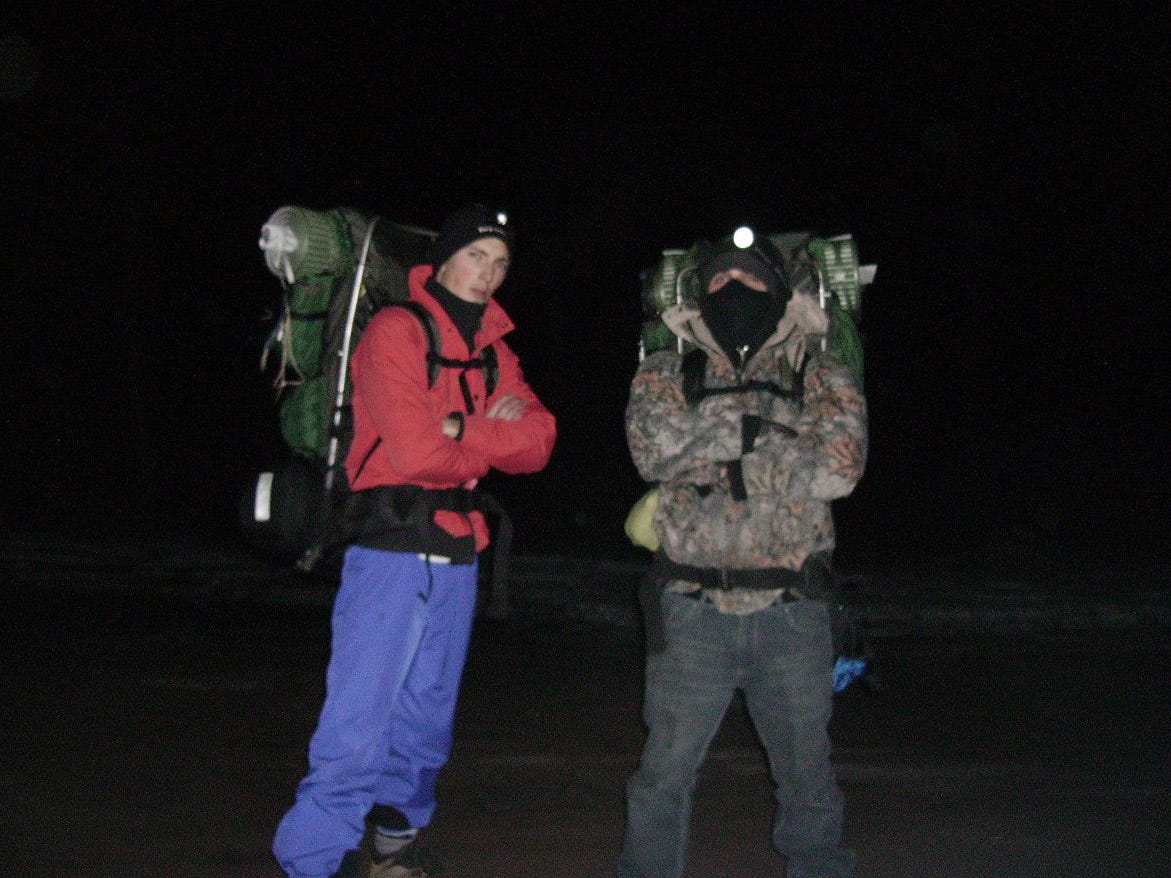A Chilling Pursuit
Evading nightmares and axe murderers in the mountains of eastern Pennsylvania.
In the woods, I always dream of axe murderers. Not mutants or witches, but escaped convicts—madmen on the hunt to spill innocent blood.
It started on my first cabin trip with the Boy Scouts. I woke up in darkness, paralyzed with the fear that someone might come for me. For every subsequent trip, I never slept outside and always chose the top bunk furthest from the main entrance. That way, I’d have plenty of time to escape if the troop leaders couldn’t stop the villain in time.
As a scout, none of my worst fears came true. But I was still wary. In my teens, I began exploring backcountry trails in New York and Pennsylvania with my friends. Like me, they were city boys with no survival skills and only the faintest idea of how to use a pocket knife for protection. So once the sun dipped below the tree line, and they pointed out a potential campsite, my concern was not whether we were close enough to water or far enough from the trail so that other travelers wouldn’t see me poop. Instead, I wondered, How easy would it be for a criminal to find us here? And how quickly could I throw my friend’s body in front of my own to save myself?
Only once did I manage to close my eyes and not startle awake to a nightmare.
It was January 2011, and the sun had long set by the time Jeremy and I arrived at the Thunder Swamp trailhead in eastern Pennsylvania. It hadn’t been snowing when we set out from Bayonne. But stretching far beyond the trailhead, at least a foot of snow and ice covered the footpath. We plowed ahead regardless, stringing our sleeping bags to our packs, turning our headlamps to their brightest setting, and hiking until we lost sight of the trail markers.
“Let’s make camp on top of that hill,” Jeremy said, pointing to a clearing twenty yards from where we’d strayed from the trail. “In the morning, we’ll figure out the way.” I trusted his instinct. The snow was shallow in the clearing, and we’d be high enough on the hill to detect any axe murderers before they were on top of us.
It was already below 10 degrees when we started unpacking the tent. We worked quickly with our gloves off. But despite our Phelpsian pace, our fingers throbbed by the time we’d clipped the last plastic snap to the pole. We dove inside but experienced no relief. The temperature would dip below zero within an hour.
That first night, Jeremy asked God to supernaturally deliver extra hand warmers into our bags. I asked Him not to let us contract hypothermia in our sleep. We were too cold to think about the danger that lurked just miles ahead.
Looking back, I can’t believe Jeremy and I went to Thunder Swamp in those conditions. We were 21, more valiant and stupid than we are today. But we also knew that in six months, we’d both graduate college, get married, and move away from each other, likely forever. We had one last opportunity to be together in the solace only nature provides, and we had to take it.
Our first outdoor adventure had taken place four years earlier, weeks before setting off for college in different places. That time, with Mickey and another high school friend, we ventured north into the Adirondack Mountains of upstate New York. Jeremy had handled the planning and, in his original draft, we were to recover from our trek at Mickey’s aunt’s house in a small hamlet just west of the Connecticut border, then make our way to Thunder Swamp. But after we got off Mount Pharoah, heavy storms were in the forecast, and we decided not to risk it. “We’ll get back to the swamp one day,” Jeremy said after crossing it off our itinerary.
The next summer, we headed overseas, camping for three weeks in backyards and on hillsides across Scotland. For two years after we got back, we continued to imagine new places we’d venture to before graduation. But, as a trio, none of those trips ever came to fruition. The clock was ticking, and Thunder Swamp was the only place on the list within driving distance by that final January of our adolescence.
Keep reading with a 7-day free trial
Subscribe to Storytime with Big Head to keep reading this post and get 7 days of free access to the full post archives.





